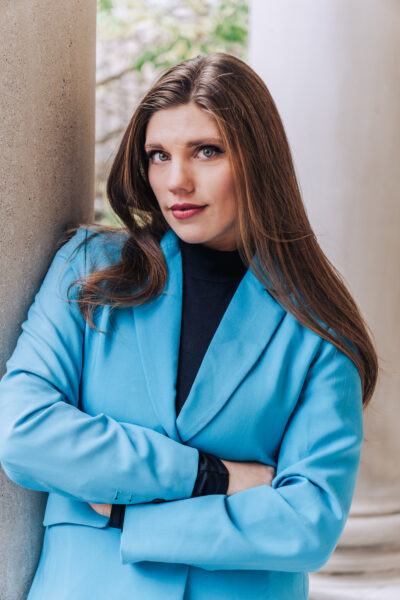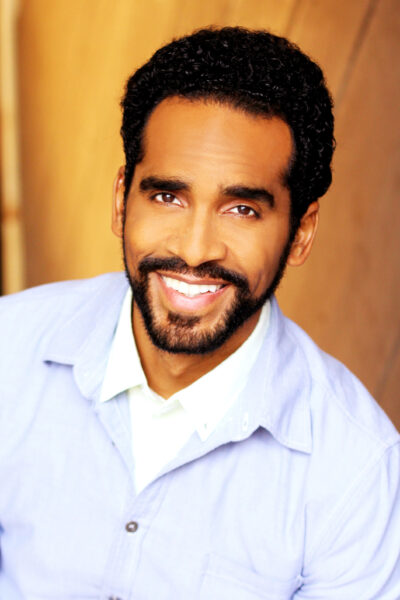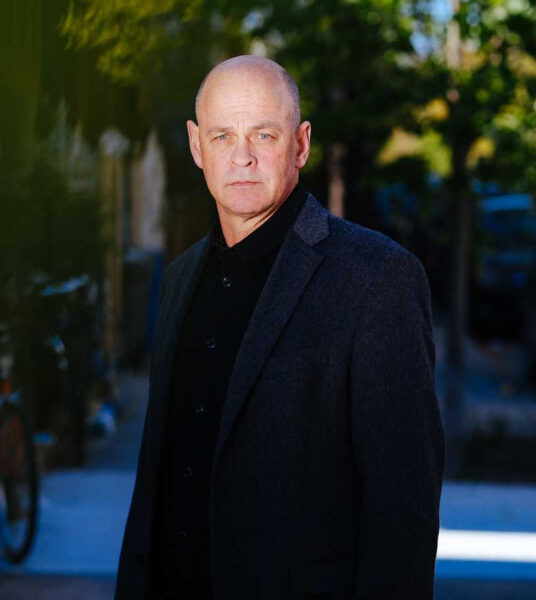It took a dozen years of performing professionally before Cameron Schutza found his truest voice. That’s a testament to his versatility, since the tenor was already flourishing playing lyrical or spinto roles, like Don José in Carmen, Manrico in Il Trovatore or Lt. Pinkerton in Madama Butterfly.
Those things looked like contentment, and he loved performing them. But so did stentorian Wagner roles such as Siegmund in Die Walküre, or the title role in Tannhäuser. Listening to new teachers about five years ago and his own instincts brought Schutza closer to the latter, bringing him awards and satisfaction in navigating one of opera’s rarest and most demanding voice types, the heldentenor.
Schutza recently wrapped up an engagement as Mao Tse-tung in Nixon in China, a perfect role for that “middle”heldentenor voice that can handle a treacherously high tessitura with the gravitas of a baritone, all while sounding nothing like a baritone. The voice type has been loosely associated with “heroic” roles, but Schutza thinks that’s looking at it with the wrong lens.
“You always try to identify with the character,” he said, “because it helps with creating a believable portrayal, although sometimes it can be difficult. For example, I don’t think of (Mao) as a heroic person, and I definitely find him difficult to relate to on many levels. That is primarily because his revolution killed millions of people. However; in other aspects you can relate, since he was a very intelligent, well read, and an extremely driven person. You have to find that part of a character that relates to you and run with it.”
Other characters such as Pinkerton are flawed in ways that stop short of evil, or start out in sunnier places than they end up. A bad romance triggers Don José’s descent from happy-go-lucky soldier to vengeful murderer. In all cases, Schutza wants listeners to identify with the character as much as he has.
After playing Don José in Walla Walla, Wash., he recognized the audience’s “playful boos” at his curtain call bow as a signal he had connected.
“There’s a little boo and then it goes away and it’s just all applause. For me, at least, that’s kind of how you know when you’ve made that transition from the first act to the last, that you’ve made the whole thing believable.”
To get there, he often reads books in bunches in and around the subject matter of his next role, starting with Shakespeare. The idea, he first heard in a lecture in college, is “to have as many different emotions and situations as possible, or something that can remind you of a situation you might be in in an opera. That all hopefully goes into the brain, and then when you need it you think, ‘Oh, that’s right, this is the same sort of thing I was feeling when I was reading So-and-So.’ And I can kind of relate to that emotion and hopefully bring that emotion out more.”
He recently read two biographies of Mao, as well as his red book of quotations, then took a breather with yet another spate of science fiction.
He grew up in Houston, not in a family of musicians but with “music in the house,” thinking he might follow his father into a law practice.
A chance to see Vanessa Redgrave in Shakespeare’s Julius Caesar while in junior high school was memorable. “I was able to see the performance twice. She was Portia and her brother (the late Corin Redgrave) was Caesar. The way they held the stage and the audience’s attention was electric and something I will never forget.” Around the same time, he saw his first live opera at Houston Grand Opera. “It was Maurice Sendak’s production of Hänsel und Gretel. The sets were straight out of Where the Wild Things Are, the music was incredible, and I thought ‘this is something I want to do.’”
In college he started out majoring in both music and biology, thinking that he might want to do medical research or have that degree in his back pocket. He dropped the fallback option after a year, but still reads nonfiction books about medicine and science.
Schutza debuted professionally at age 24, and earned roles or residencies at numerous companies, including the Metropolitan Opera. Meanwhile, another musical journey was playing out within him.
“Over 15 years my voice has changed at least three times,” he said. “You get older, you mature. Male voices take a lot longer to mature into what they are eventually going to be. Especially tenor voices.”
He had performed lyrical and bel canto roles, but never thought about committing to those styles until colleagues suggested it.
“For the longest time, between the second and third transitions, everybody said, ‘You should be singing this lyric tenor rep,’” he said. “And I kept thinking, ‘This isn’t right, this isn’t right, I think I should be singing much bigger stuff – bigger Verdi, bigger Puccini, maybe some Strauss.’”
Still, he listened and was on the verge of giving that advice a try. He was preparing for lighter tenor roles five years ago when he first began working with Elizabeth Blancke-Biggs and Michael Recchiuti, a renowned dramatic soprano and teacher and her conductor/pianist husband who work as a team. The turning point came when Schutza sang one of Apollo’s arias from Daphne, a Strauss opera, as Recchiuti played and Blancke-Biggs was in the basement.
“It was one of those ‘aha!’ moments. I sang through the excerpt four times while she was doing laundry.” he said. “Then she came up and Michael said, ‘Sing this again.’ I sang it three more times. Then later that night they called me and said, ‘You are not a lyric tenor.’”
Instantly he knew. “It really was like someone flipped a light switch,” Schutza said. “They told me we needed to look at new rep, bigger rep.” Then along came a chance to try out this new rep on a larger scale, a competition.
He won the Wagner Society of New York’s 2016 Robert Lauch Memorial Fund Endowment Award. Another accolade followed in Denmark, when he advanced all the way to the finals of a competition named for one of the greatest heldentenors of all time, the Lauritz Melchior International Singing Competition, winning Third Prize with the Queen of Denmark in the audience.
“It was a tremendous experience and huge wakeup call, when you realize, ‘Yeah, this is definitely the rep I should be singing,’” Schutza said. “There are moments where you think, ‘I’ve actually been doing this right.’”
He gets back to Texas whenever he can, going on camping trips with friends from high school or refining his hobby of photography. Cityscapes of Houston show up in his Instagram accounts (“heldentexan” and “cs_photographynyc”), as do spectacular purple-and-maroon sunrises, enticing food concoctions and his black Schnauzer, Ayla.
Sometimes the buddies go shark fishing in the Gulf, employing a catch-and-release method that is as tricky as it sounds.
“If it’s a really big one, the idea is that one of you gets in the water while it’s on the line, and ties a rope around its tail to hold it in position,” Schutza said. “You can then go to the business end to get the hook out of its mouth.”
That’s a role Schutza hasn’t played yet. But after all the care and talent he’s devoted to nurturing his singular voice, hook remover should be a piece of cake.
– Andrew Meacham







